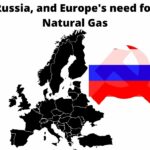This line of Heckmann’s business relies on expanded demand for natural gas. So it seemed natural for Heckmann to look for a way to encourage natural gas adoption, and the company happened to have a large fleet of big trucks to haul water around to these fracking operations. They wanted to buy a fleet of LNG big trucks but ran into the chicken-and-egg problem we’re familiar with in electric vehicles.
The quandary is that charging station operators (whether it’s an electricity or LNG charging station) want to know there are customers for their charging stations. This means that before building a charging station there must be a fleet of compatible vehicles in the area. On the other hand prospective vehicle owners also must see a network of charging stations before they’ll buy vehicles. This is a self-reinforcing system that could prevent adoption of useful vehicle technologies if neither charging station owners nor vehicle owners budge. Someone has to move first.
Heckmann decided to move first working with Westport Innovations and Encana to build an LNG charging station in the vicinity of the hydraulic fracturing jobs Heckmann services with their trucks. The side effect of this is that Heckmann’s region now has LNG fueling capability, which then makes other prospective big truck buyers more likely to buy LNG big trucks. It’s a pattern that could lead to LNG fueling stations growing step by step around the country.
Because LNG is supposedly cleaner than diesel or gasoline, this is theoretically a win. But, recently researchers have shown that Natural gas from Shale is not a clean “bridge fuel” and may worsen climate change![]() . The issue is that at the frack jobs a lot of methane is because, following a hydraulic fracturing process methane leaks out of the well before the well can be capped. Further, natural gas pipelines are sometimes leaky, due to the age of the
. The issue is that at the frack jobs a lot of methane is because, following a hydraulic fracturing process methane leaks out of the well before the well can be capped. Further, natural gas pipelines are sometimes leaky, due to the age of the
pipeline infrastructure. The average long distance gas transmission
pipeline is over 50 years old, and in some cities the natural gas
infrastructure is 80-100 years old.
Basically, because of methane leakage issues, natural gas usage is bad for climate change considerations. Natural gas and methane are essentially the same thing, and these gasses are extremely potent greenhouse gasses. Methane is far more potent a greenhouse gas than CO2. When its burned such as in a big truck, the primary exhaust is CO2, so essentially burning methane (natural gas) converts it from an extremely potent greenhouse gas, to one that’s more palatable though still a bad greenhouse gas.
This means that Heckmann may be thinking they’re doing good things by switching from Diesel to LNG, but the side effects of the natural gas usage is pretty bad.
- Highway design could decrease death and injury risk, if “we” chose smarter designs - March 28, 2015
- GM really did trademark “range anxiety”, only later to abandon that mark - March 25, 2015
- US Government releases new regulations on hydraulic fracturing, that some call “toothless” - March 20, 2015
- Tesla Motors magic pill to solve range anxiety doesn’t quite instill range confidence - March 19, 2015
- Update on Galena IL oil train – 21 cars involved, which were the supposedly safer CP1232 design - March 7, 2015
- Another oil bomb train – why are they shipping crude oil by train? – Symptoms of fossil fuel addiction - March 6, 2015
- Chevron relinquishes fracking in Romania, as part of broader pull-out from Eastern European fracking operations - February 22, 2015
- Answer anti- electric car articles with truth and pride – truth outshines all distortions - February 19, 2015
- Apple taking big risk on developing a car? Please, Apple, don’t go there! - February 16, 2015
- Toyota, Nissan, Honda working on Japanese fuel cell infrastructure for Japanese government - February 12, 2015










